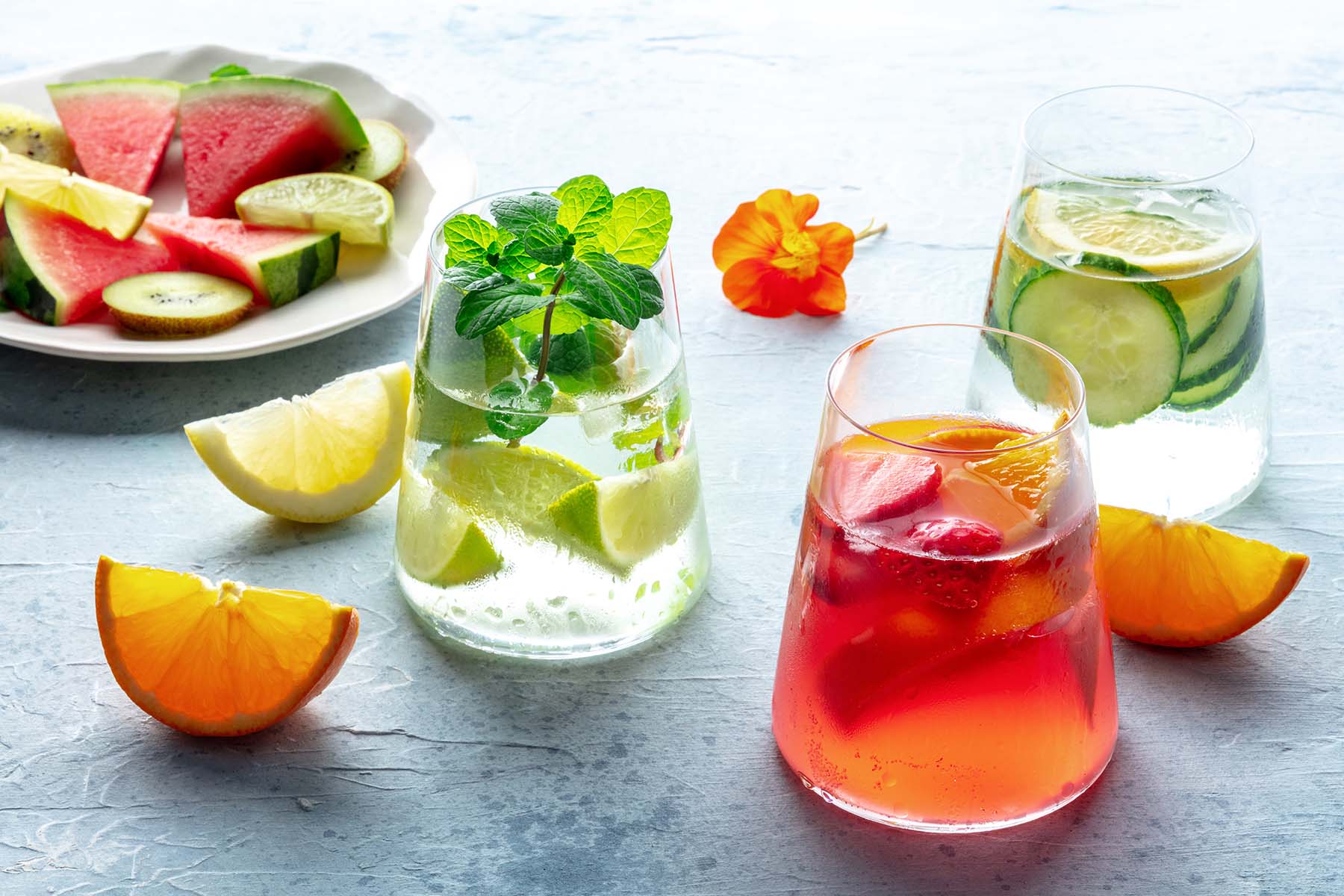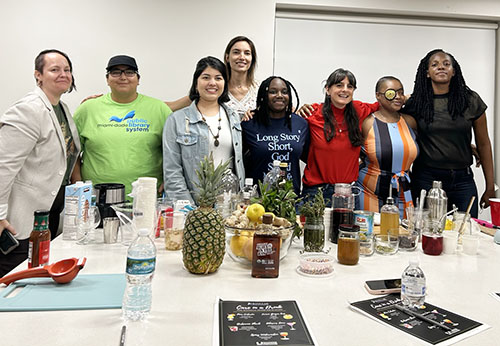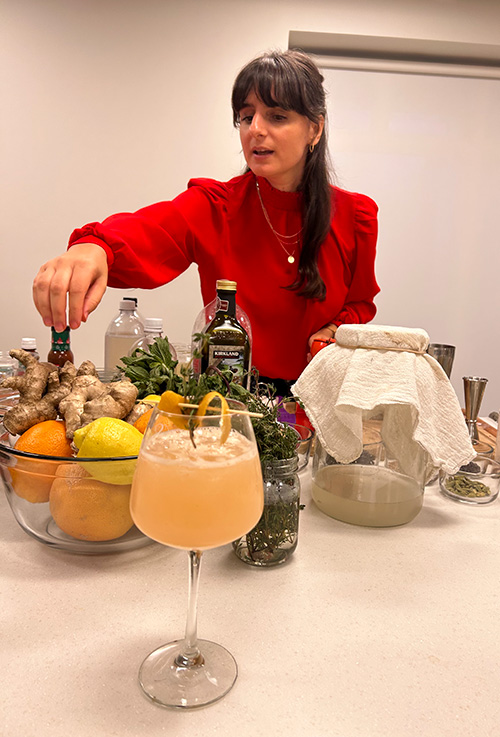How to Stay Socially Active Without Alcohol Before, After Cancer Treatment

Drinking alcohol can be a big part of socializing among people of any age group, especially young adults. Nearly half of males ages 18 to 25, and more than half of females in the same age group, report drinking alcohol, according to government statistics.
“There is clear evidence that drinking alcohol increases the risk of at least seven cancer types, including cancers of the oral cavity, pharynx, larynx and esophagus cancers, as well as liver, stomach and breast cancers. Even low alcohol consumption is linked to some increased cancer risk,” says Paola Rossi, M.D., M.S., manager of clinical operations for lifestyle medicine in cancer survivorship at Sylvester Comprehensive Cancer Center, a part of UHealth – University of Miami Health System.
Adolescents and Young Adults (AYAs) in treatment for cancer and survivors alike report that they struggle with balancing the social desire to drink with the knowledge that alcohol is not good for them, Dr. Rossi says.
Researchers have also found that AYA cancer survivors are as, or more likely than, people their ages without cancer to report problems with alcohol or illicit drugs, underscoring the importance of interventions aimed at reducing alcohol and substance use in this population.

“Many of the AYAs who have either received treatment at Sylvester or have participated in some of Sylvester’s programs have told us that they know they should stop drinking but really don’t know how to in their everyday lives,” says Dr. Rossi, who recently ran a Care in a Drink mixology class at Sylvester, aimed at normalizing non-alcoholic drink options for AYA survivors.
Rather than infusing vodka, rum, tequila or whiskey into their drinks, the up-to-39-year-olds at the Care in a Drink event learned how to craft mocktails, healthy nonalcoholic party drinks with fancy names, like the pina colada, strawberry balsamic shrub, lemon ginger bug, shaken hibiscus and spice watermelon splash.
“Care in a Drink came about so we could help our young people learn about mixology, which is a popular topic among AYAs. Our mixology class was fun, easy and a comfortable place to mingle, while learning how to enjoy socializing without alcohol.”
Four life hacks for socializing without alcohol
Dr. Rossi says there are simple tips that can help AYAs embrace rather than dread their next social event.
Reframe the conversation.
Rather than responding with the typical, “Oh, I’m not drinking alcohol,” say, “I’m drinking this new type of beverage. I’m exploring fermentation. I’m exploring new flavors.”
It’s all about normalizing the situation so you don’t have to explain why you’re not drinking alcohol, Dr. Rossi says.
Be the organizer.
Suggest a non-alcoholic related activity. Or, learn about mixology and invite your friends to come over and make these new, non-alcoholic drinks. There are many recipes and classes available online.
Plan ahead.
If you’re going out with friends to a bar, call the bar beforehand and ask what nonalcoholic drinks are available.

Choose your signature nonalcoholic drink.
Pick a non-alcoholic drink that you look forward to enjoying. When at home, even drink from your favorite cocktail glass.
To avoid pressure, try to always have a drink in your hand so you don’t have to explain yourself to people who offer you another one.
“We know the recommendations when it comes to alcohol but implementing them is not always easy. So, we’re building bridges and making it easier for people to change their lifestyle and make it sustainable,” Dr. Rossi says. “The goal is to increase awareness about the consequences of alcohol for everyone who is in cancer treatment or has completed treatment and ensure they have the support they need to socialize without it.”
That’s important because maintaining strong relationships is key for people of any age who have or have had cancer, she says.
Sylvester’s program for AYAs is packed with free events for patients and survivors, including music, art, meditation, exercise and more tailored for young people. For more information about the cancer center’s AYA Program for Adolescent and Young Adult Cancers, visit the program’s webpage on Sylvester’s website.
Lisette Hilton is a longtime health reporter and regular contributor to Sylvester Comprehensive Cancer Center and University of Miami Miller School of Medicine news.
Tags: cancer care in Miami, cancer support services in Miami, creating mocktails, Sylvester Cancer Survivorship
